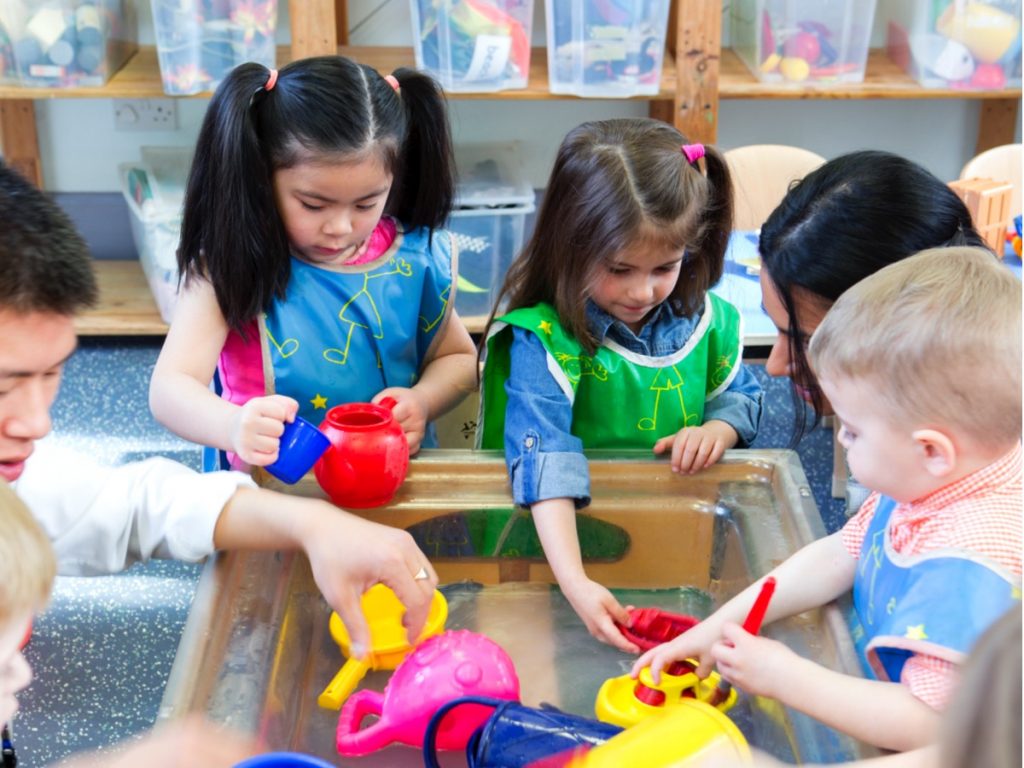
Science begins with a sense of wonder and curiosity. It involves asking “why?,” “how?,” “I wonder?,” and “what if?” Science includes observing, exploring, making predictions, and discovering new things. For example, a child might observe that some things float in the water table, while others don’t. She could explore by putting more objects in to see whether they float or not. She might notice that heavier objects are more likely to sink, especially ones that are smaller in size. She can start to make predictions about whether other objects will sink or float. Children build their science skills by using logical reasoning to solve mysteries. They might learn about nature, how different textures feel, or about cause and effect. On the next page you will see a video of young children engaging in scientific exploration.
-
- Scaffolding
- the support a caregiver provides a child to help them achieve more than they would be able to accomplish on their own
- STEM
- (science, technology, engineering, math) a group of topics linked by a common focus and approach